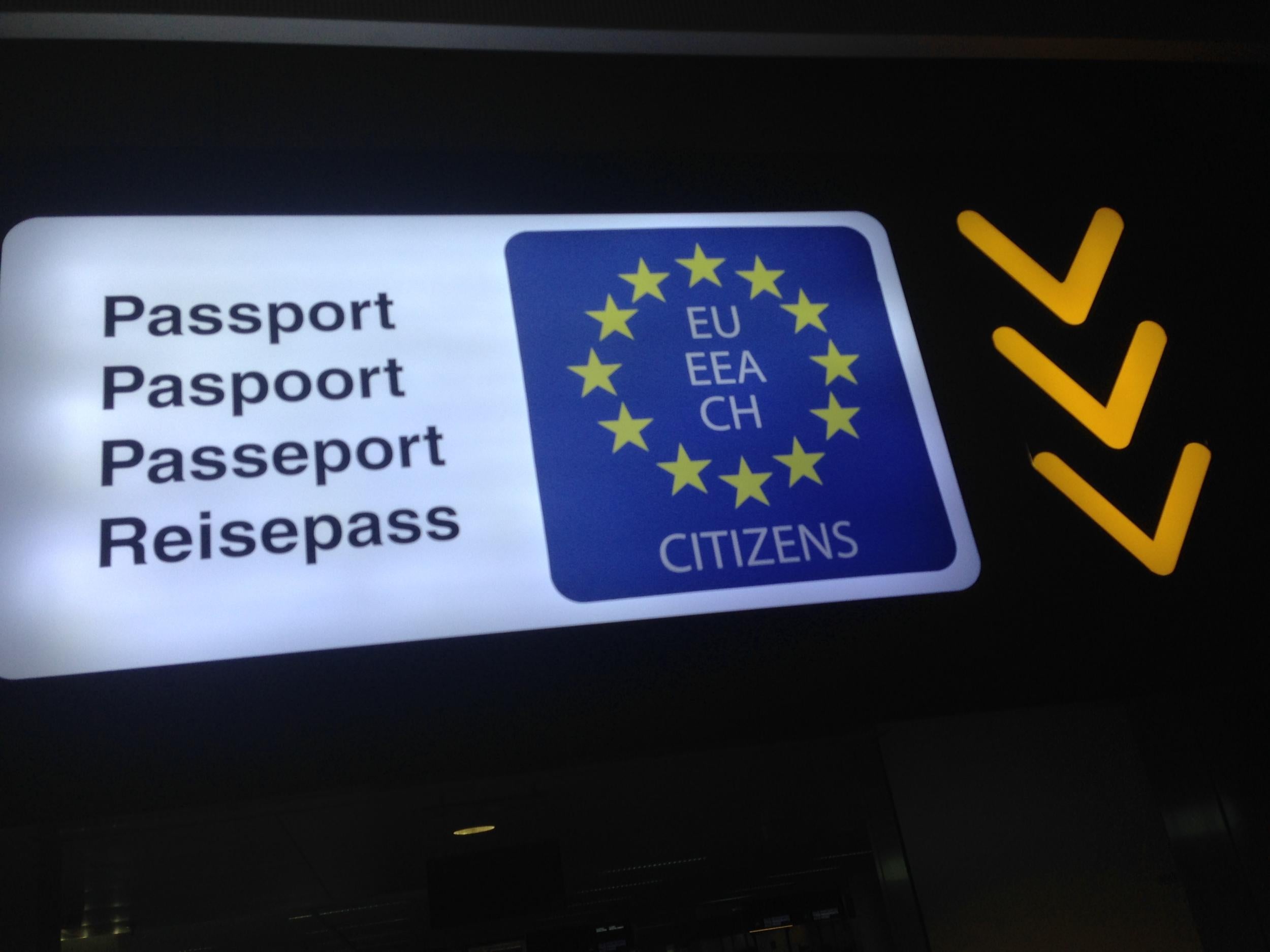Could red tape for British visitors to Europe soon get more tangled?
Europe may impose obligation for travellers to announce their intentions

Your support helps us to tell the story
From reproductive rights to climate change to Big Tech, The Independent is on the ground when the story is developing. Whether it's investigating the financials of Elon Musk's pro-Trump PAC or producing our latest documentary, 'The A Word', which shines a light on the American women fighting for reproductive rights, we know how important it is to parse out the facts from the messaging.
At such a critical moment in US history, we need reporters on the ground. Your donation allows us to keep sending journalists to speak to both sides of the story.
The Independent is trusted by Americans across the entire political spectrum. And unlike many other quality news outlets, we choose not to lock Americans out of our reporting and analysis with paywalls. We believe quality journalism should be available to everyone, paid for by those who can afford it.
Your support makes all the difference.The picture of life in post-Brexit Britain is still very hazy. But it’s looking possible that red tape for travellers could get more tangled, with UK passport holders needing to apply online to visit Europe. It could increase the cost as well as complexity of holidays and business trips. Here's a look at the prospects for tougher bureaucracy.
Q What do the rules say at the moment?
The British passport is an EU travel document, so there are minimal formalities for trips to the continent. If you’re travelling to Europe by ferry or train, you just need to show your UK passport. Airlines have to collect “advance passenger information” to provide to national governments for security purposes, but it’s done with a light touch. And of course you can use the fast-track passport control queues for EU members rather than the longer lines for “Other Nationalities”.
Q What is Europe considering?
Before the EU referendum, the European Commission started looking at the “EU Travel Information and Authorisation System” (ETIAS) for nationals of countries outside the Schengen area – which comprises almost all the EU countries – apart from the UK and Ireland – plus Switzerland, Norway, Iceland and plucky Liechtenstein.
At present the citizens a significant number of non-EU countries do not need a visa to enter the Schengen area. ETIAS is aimed at these "third-country nationals". At present, frontier officials have no forewarning about such travellers' travel plans until they turn up at the border. The ETIAS scheme would oblige the visitor to “register relevant information regarding their intended journey via the internet”.
The European Commission says: “This would facilitate the border crossing of these third-country nationals and increase the effectiveness of the work for the border guards.
"As a secondary objective, a system could help Law Enforcement Agencies combatting serious crime and terrorism.”
Q What would it mean for post-Brexit British travellers?
If the system was brought in after the UK leaves the EU, it could mean that every time you wanted to go to Europe, you would first need to go online and declare your intentions. In fact, since this is a Schengen/non-Schengen issue rather than an EU/non-EU issue, in theory it could even take effect while Britain is still a member.
At present the nature of the frontier between Northern Ireland and the Republic after Brexit is unclear – but it is not impossible that ETIAS could apply to people in Northern Ireland nipping across the border to the Republic.
Q Would the UK impose a tit-for-tat scheme for European visitors?
There has long been an element of reciprocity in border regulations, which for example explains why British and Russian travellers face so many hurdles when seeking to visit each other’s countries. But it may be that, independent of ETIAS, measures to “strengthen” the UK’s frontiers after Brexit could lead to an online system being imposed for all visitors to Britain.
The UK tourism industry may well object to such proposals, on the grounds that they would diminish the appeal of Britain to overseas visitors.
Q What other countries have similar schemes in operation - and hs it damaged their tourist industries?
The most prominent example is the US ESTA scheme. The Electronic System for Travel Authorisation costs $14 (£11) and requires a complex application to be completed. Successful applications are valid for two years. Like the proposed ETIAS scheme, it is just an online prelude to the border check – at which visitors to the US are required to be photographed and fingerprinted. ESTA was introduced as a direct result of the September 11 attacks 15 years ago, but other nations have followed suit.
Canada has brought in a similar online scheme this summer, which has had teething problems; only on 29 September, some six months late, does it become compulsory.
Turkey implemented compulsory online visas last summer. Since then, tourism has slumped, but probably only a small element of that is to do with the new visa regime.
Q How likely is it that the ETIAS scheme will take effect?
Both sides in the referendum debate speculated about the possibility of more tangled red tape before the referendum. What ultimately happens depends on whether the EU decides that the UK should be granted special status, or whether we should be regarded as outsiders along with every other non-EU nation. Meanwhile, the prospect of more tangled red tape will enhance still further the appeal of an Irish passport, for those who are able to qualify through birth or ancestry.
One inevitability if the online system comes into operation is that a wide range of scam sites will be set up, imitating the official portal and charging hapless travellers many times the going rate.
Join our commenting forum
Join thought-provoking conversations, follow other Independent readers and see their replies
Comments